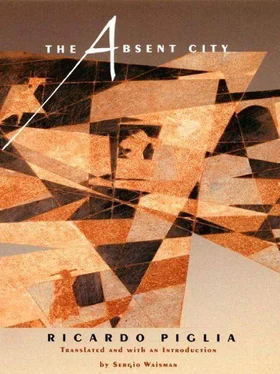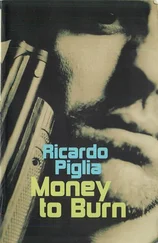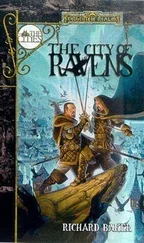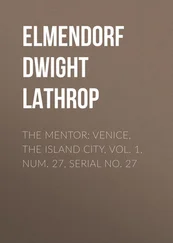I have woven and unwoven the plotlines of time, she said, but he has left and will not be back. A body is a body, but only voices are capable of love. I have been here alone for years, on the banks of every river, waiting for night to arrive. It is always daytime, at this latitude everything is so slow, night never arrives, it is always daytime, the sun goes down so slowly, I am blind, out in the sun, I want to tear off “the iron blindfold” from my head, I want to bring “the concentrated darkness of Africa” here. Life is always threatened by hunters (Nolan has said), it is necessary to build meaning instinctively, like the bees their honeycombs. Unable to ponder my own enigma, I conclude that he is not the one narrating, but rather his Muse, his universal song.
If the legend is true, the island was a large settlement for exiles during the period of the political repression following the IRA counteroffensive and the fall of the Pulp-KO. But there is no historian who knows the least bit about that past or about the time when Anna Livia was alone on the shore or about the time when the two hundred families arrived. There are no traces left attesting to any of these events. The only written source available on the island is Finnegans Wake, which everyone considers a sacred text, because they can always read it, regardless of the stage of language in which they find themselves.
In fact, the only book that lasts in this language is the Wake, Boas said, because it is written in all languages at once. It reproduces the permutations of language on a microscopic scale. It is like a miniature model of the world. Through the course of time it has been read as a magical text containing the keys to the universe, and also as the history of origin, and the evolution of life on the island.
No one knows who wrote it, nor how it got here. No one remembers if it was written on the island, or if it was brought on shore by the first exiles. Boas saw the copy that is kept in the Museum, in a glass box, suspended in nuclear light. A very old edition printed by Faber & Faber, over three hundred years old, with hand-written notes in the margins, and a calendar with a list of the deaths of an Irish family in the twentieth century. This was the copy used to make all the other copies that circulate on the island.
Many believe that Finnegans Wake is a book of funereal ceremonies and study it as the founding text of the island’s religion. The Wake is read in churches like a Bible, and is used for sermons in every language by Presbyterian ministers and Catholic priests. Genesis tells of a curse from God that led to the Fall and transformed language into the rough landscape it is today. Drunk, Tim Finnegan fell into the basement down a flight of stairs, which immediately went from ladder to latter and latter led to litter and with all the confusion became the letter, the divine message. The letter is found in a pile of trash by a pecking chicken. Signed with a tea stain, the text has been damaged by the long time it has remained in the trash. It has holes and blurred sections and is so difficult to interpret that scholars and priests conjecture in vain about the true meaning of the Word of God. The letter appears to be written in all languages at once and continually changes under the eyes of men. That is the gospel and the garbage dump whence the world comes.
The commentaries of Finnegans Wake define the ideological tradition of the island. The book is like a map, and history is transformed depending on the course chosen. The interpretations multiply and the Wake changes as the world changes, and no one imagines that the life of the book might cease. However, in the flow of the Liffey there is a recurrence of Jim Nolan and Anna Livia, alone on the island, before the last letter. That is the first nucleus, the myth of origin precisely as it is told by the informants (according to Boas).
In other versions, the book is the transcription of Anna Livia Plurabelle’s message. Her reading her husband’s (Nolan’s) thoughts, and speaking to him after he is dead (or asleep), the only one on the island for years, abandoned on a rock, with the red tapes and the cables and the metallic frame in the sun, whispering on the beach until the two hundred families arrive.
All the myths end there, and so does this report. I left the island two months ago, Boas said, and I can still hear the music of that language that flows like a river. They say there that he who hears the song of the washerwomen at the shores of the Liffey will not be able to leave. I, for my part, have not been able to resist the sweetness of Anna Livia’s voice. That is why I will be returning to the city that exists in three times at once, and to the bay where Bob Mulligan’s wife lies, and to the Museum of the Novel where Finnegans Wake is found, alone in a room, in a black glass box. I, too, will sing in Humphrey Earwicker’s tavern — drinking beer and pounding on the wooden table with my fist — a song about a one-eyed bird that flies endlessly above the island.
Following the turns of the channels and the tributaries of the major waterways of the Delta that borders the city, with its islands and streams and waterlogged lands, was like looking at the chart of a lost continent. Junior had a map, and when he arrived at the Tigre he asked around and was shown the route at one of the terminals of the Inter-Islander. He hired a pilot from the station and rented a motor launch at the Rowing Club. If his calculations were correct, the Russian’s colony should be off of one of the bends of the Pajarito, before reaching the open river. They had to navigate up the Carapachay and come out along the stronger currents of the northern waterways. The further he went up the Paraná de las Palmas, the more and more secure Junior felt, as if he were crossing a border that was taking him back to the past — and somehow, strangely, bringing him closer to his daughter. After traveling for two hours, the vegetation became denser, and they passed the remains of a laboratory, indicating that they were approaching the Russian’s plant. They skirted an islet full of rushes, then a sandbank, and came out again into open waters. Up ahead, hazily in the fog, he could see higher ground, with jagged ravines and cement foundations. In the middle, elevated on stone pillars and surrounded by an iron railing, was a fortified building with broad circular windows facing the gardens and the river. A man on the dock waved his hat at them, motioning for them to moor there. He was one of the Russian’s assistants. He welcomed Junior and helped him off the motor launch, holding his arm firmly, and showed him the path up to the house. The building was in the middle of a clearing. A pebbled path crossed through a small forest of willow trees and led right up to the wire fence surrounding the house.
“Santa Marta Island, and on this side is the Biguá creek. This area has always been occupied by foreigners,” the man explained to him. He seemed friendly and obliging, and spoke with a slight accent that sounded like a speech defect. They went through the gate and climbed toward the gardens. At that moment, a tall, thin man was seen walking across the gardens toward them with his hand extended.
“I am the Russian. You are the journalist, and I must ask you to be discreet and not take any photographs. Come, sit here,” he showed him a wicker chair on the veranda that surrounded the house. “They think,” he said, “that they have disactivated her, but that is not possible, she is alive, she is a body that expands and retreats and captures what is going on. Look,” he said, “there is a faucet out there in the garden, almost at ground level, and very cool, clean, crisp water comes out of it, even in the middle of summer. It is at the foot of those hedges over there. Sometimes I imagine that I go over and lie face up on the grass, to drink. But I never go, so I keep a certain possible action alive. Do you see what I mean? An open option, that is the logic of experience, always what is possible, what is to come, a street in the future, a door in a boardinghouse by Tribunales, near the courthouse, and the strumming of a guitar. There is no such thing as an imperfection, in reality it has to do with stages, the third stage or the third area, as was foreseen. There has been a retreat, a strategic withdrawal.” “We,” the Engineer said, “have reached a point in which we are able to conceive of life as a mechanism whose most important functions are easily understood and reproduced, a mechanism that we can make run at faster or slower rhythms, and thus at a higher or lower intensity. A story is nothing more than a reproduction of the order of the world on a purely verbal scale. A replica of life, if life consisted just of words. But life does not consist just of words. Unfortunately, it is also made up of bodies or, in other words, of disease, pain, and death, as Macedonio would say.
Читать дальше












